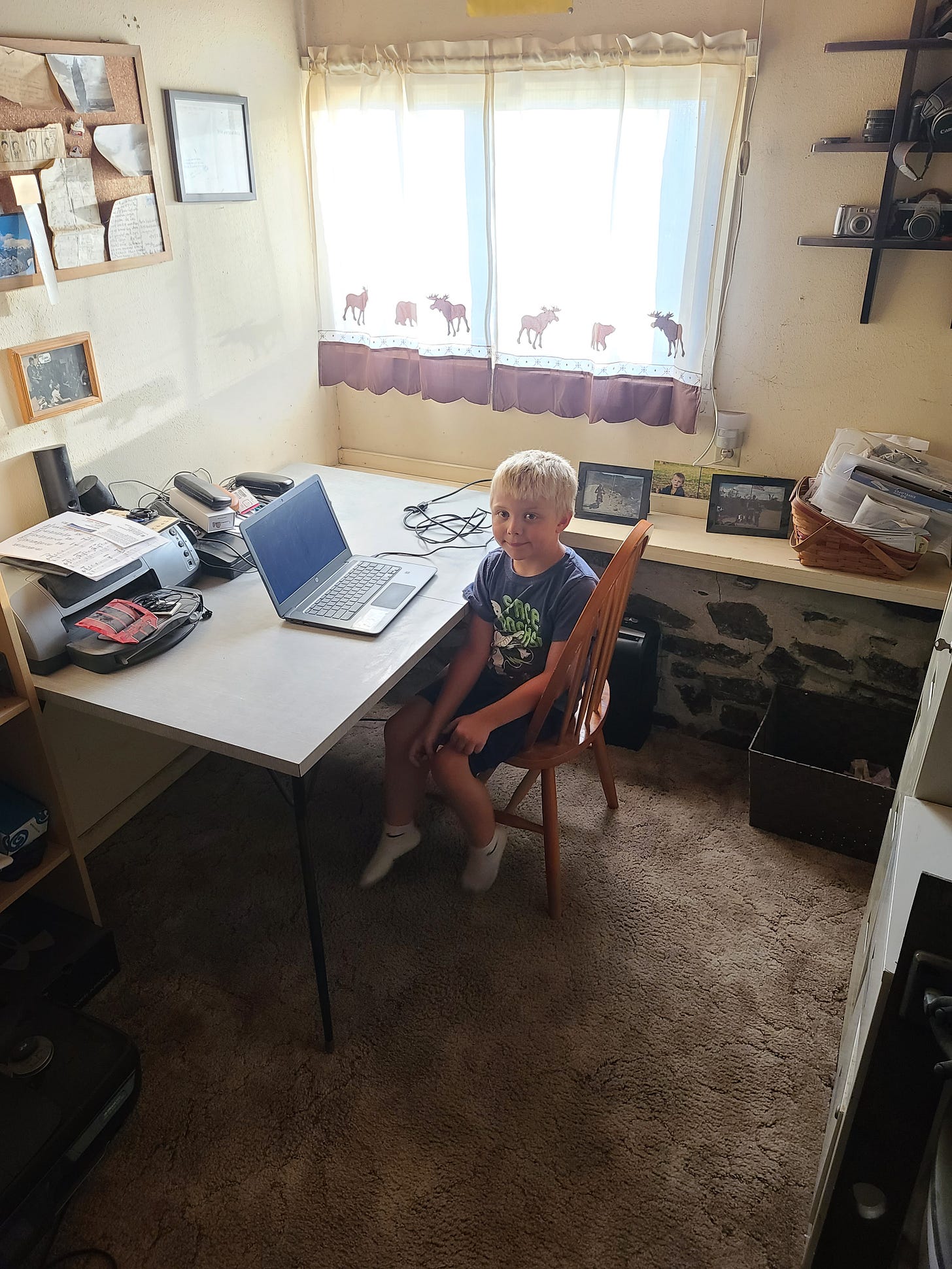Sixty Years
Why we decided to enroll our children in charter schools
This past week my youngest son, who just turned six, sat down to begin his first grade lessons at the same table I sat down to sixty years ago, almost to the day, for my first grade lessons. Across an enormous gulf of time and distance that table has endured. The range of emotions I felt as I stood in the doorway and watched him log into his computer to begin his first assignment, while seated at my old table, is beyond description. It was quite a moment.
When I look in the mirror, the image that I see is complex. It's shaped by triumph and tragedy, colored by hits and misses and influenced by a clear understanding of what's good and bad about the person in it. But when I look at my kids I don't see any of that. I see wonderful little kids, as yet untainted by the world, waiting to be shaped into the best adults that their mother and I can manage.
We intend to keep things that way as long as we can too.
My son is enrolled in an online charter school for first grade. We chose this particular school because they have very high expectations of their student learners – something we both thoroughly endorse. We'd rather have him enrolled in the physical version of the same charter school but seats there are limited. We'll keep trying until something opens up.
We made this decision, after a lot of thought, because it's just abundantly clear that most public schools do little to promote excellence - instead catering to the lowest common denominator. Academic standards in most public schools are low and accountability is virtually nonexistent. And yet instead of being concerned about the dearth of accountability, dismally low academic expectations and poor outcomes, many public school teachers and administrators seem much more concerned about mascots, age-inappropriate library books and social indoctrination than about providing kids with the academic skills they need to succeed in a complex and demanding world.
Not all of this is inherently the fault of public educators. These folks are faced with difficult odds and limited resources. Society expects a lot of public schools and many of those expectations have almost nothing to do with academics. In this regard they have my sympathy. It's a rough row to hoe.
Yet there's a notion, clearly evident among many (though certainly not all) public school teachers and administrators, that parents have few to no rights when it comes to their children's education – something that takes up a hugely influential portion of a child's youth. If one happens to disagree and tries to assert themselves as an advocate for their child they may end up getting tagged as an extremist – and in at least one school district, a possible target for the FBI.
All over the country parents just like us are voting with our feet. School choice is a growing movement and it's not overly difficult to discern why.
Right now the same folks who seem to have the most pull in public education, from kindergarten through higher education, are people who don't much believe in merit or achievement. This is the inevitable consequence of several generations entering the professional ranks who were raised with low expectations and permitted an endless litany of excuses for failing to achieve even those.
What did anyone think was going to happen when we started telling kids that the reasons that achievement was difficult had nothing to do with their own time and effort and everything to do with the world being stacked against them?


